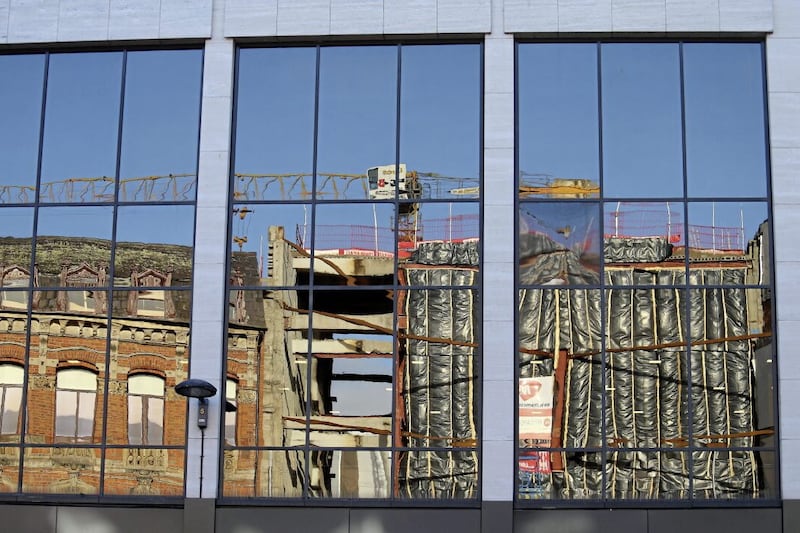AMIDST the backdrop of COP28 in Dubai, where countries are seeking to mitigate the impact of a changing planet, closer to home we are making our own strides in achieving net zero; in our case here in Northern Ireland it is the market which is leading the charge more so than the government.
The latest Rics global sustainability report indicates that occupier demand for sustainable buildings in the UK has risen, and that appetite for green buildings is on the rise locally, but legislative uncertainty is slowing investment in decarbonisation which would make a real impact on net zero targets.
The built environment contributes 40% of the world’s carbon emissions. We cannot tackle global emissions without substantially reducing embodied and operational emissions from buildings and infrastructure.
Although the findings of the report detail that both occupier and investor demand for green buildings is rising, we are still seeing a lack of measurement. Similar to what has been seen in the two previous annual reports, a significant portion of respondents report they make no measurement of embodied carbon on projects. Even if carbon is being assessed, there is little evidence to suggest that it is having an impact on the choice of materials and components. To achieve targets, measurement must become common practice.
It’s tools like Rics’ Whole Life Carbon Assessment standard that we believe will be effective in bringing consistency to the way that carbon is measured worldwide. This standard, which launched its second edition earlier this year, covers all built assets and applies from commencement to end of life, meaning it has broad applicability.
It’s encouraging to see that policy-makers in Northern Ireland are already starting to embrace this methodology and are recommending it in their guidance to public sector clients, but we need wider adoption from both the public and private sector to help in achieving next-zero.
It was also noted in the report that a lack of government subsidies is a barrier for greater investment in green buildings. Here in Northern Ireland, we are falling behind our neighbouring jurisdictions, who already have much more supportive government policy to support investment in sustainable infrastructure.
Rics is at the forefront of the profession and is recognised as a global leader in advancing carbon measurement tools available to built environment professionals. Sustainability is at the centre of what we will do going forward, and we are encouraging professionals to embed net-zero carbon targets as industry standard in both decision making and procurement approaches, in order to build a sustainable future for society.
:: Martin Doherty is chair of the NI regional board of the Royal Institution of Chartered Surveyors (Rics), which promotes and enforces the highest professional qualifications and standards in the development and management of land, real estate, construction and infrastructure








